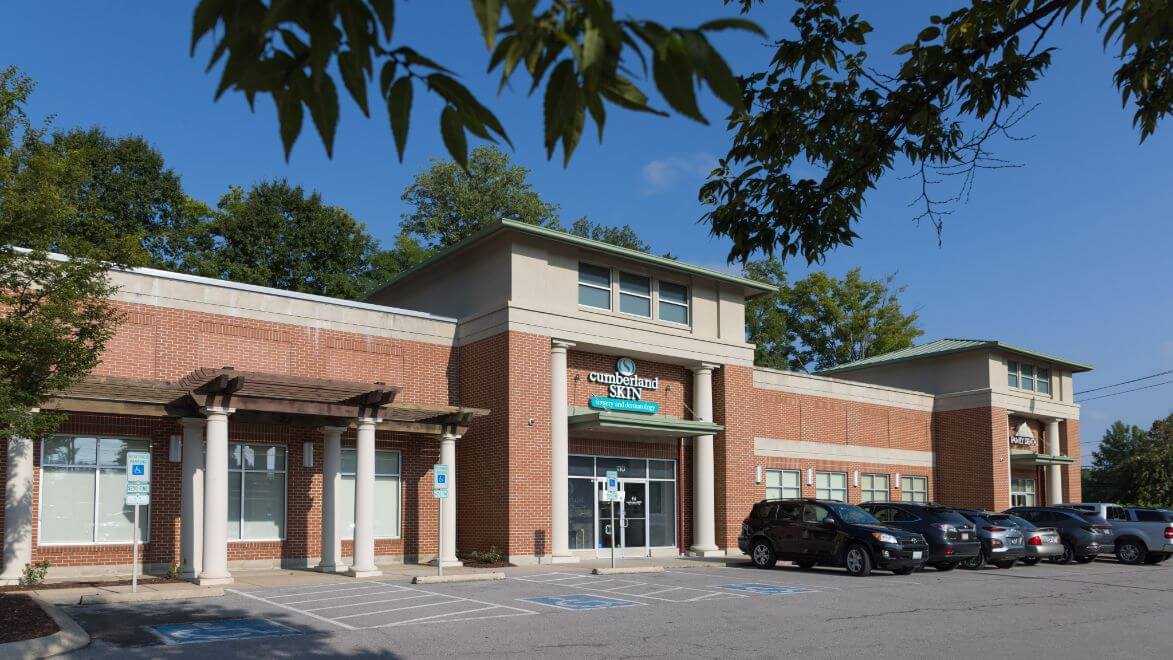Alopecia and Hair Loss
Understanding and Addressing Alopecia Areata and Hair Loss
Alopecia areata is an autoimmune disorder that results in hair loss on the scalp and other areas of the body. This occurs because the immune system mistakenly attacks hair follicles, disrupting hair growth. The condition affects over 6.5 million people, including both children and adults, and can lead to varying degrees of hair loss, from small patches to complete baldness.
Hair loss caused by alopecia areata can be distressing, but early intervention is key. If you're experiencing unexplained hair loss or other related symptoms, it's important to consult with a dermatologist. Dermatologists specialize in diagnosing and treating a wide range of hair and skin conditions, including alopecia. They can assess the extent of your hair loss, identify potential triggers, and develop a personalized treatment plan to help manage the condition and promote hair regrowth.
Taking action early on can help slow the progression of alopecia and improve your chances of achieving a better outcome. Various treatment options are available, including topical medications, corticosteroid injections, and other therapies that can help stimulate hair growth and reduce inflammation around the hair follicles.
Learn more about how Cumberland Skin can address your hair loss issues.
Examples of Alopecia and Hair Loss
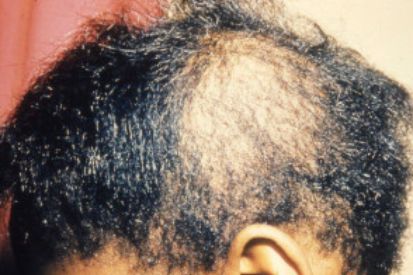
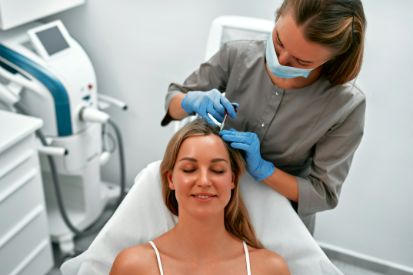
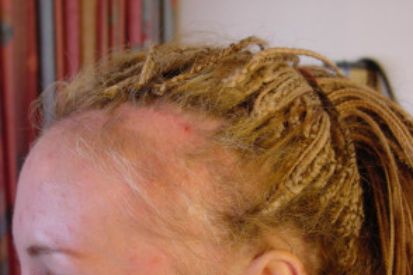
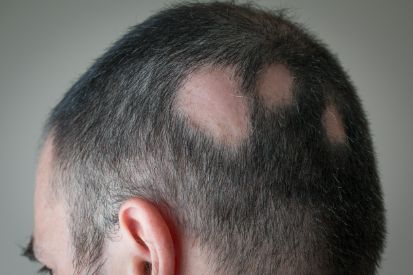
What are the Symptoms of Alopecia?
- Alopecia areata: skin loses hair in round sections of varying size.
- Alopecia areata totalis: complete loss of hair on the scalp alone.
- Alopecia areata universalis: loss of hair everywhere on the body.
- Sudden appearance of a small number of round hairless patches on the scalp, followed by total scalp hair loss.
- Some experience gradual thinning as well as itching associated with their hair loss. It will typically take 6 months for total hair loss of the scalp.
What are the Causes of Alopecia?
- Genetics and hormonal changes can cause alopecia.
- Autoimmune conditions like alopecia areata prompt the immune system to attack hair follicles.
- Medical treatments, hormonal fluctuations, infections, stress, and nutritional deficiencies can contribute to hair loss.
- Alopecia may result from tight hairstyles.
- Certain diseases and aging can lead to gradual hair thinning.
How to Prevent Alopecia
Alopecia and Hair Loss FAQs
The reversibility of hair loss depends on the cause. Some types of hair loss are reversible with appropriate treatment, while others may be permanent.
It's normal to lose some hair daily as part of the natural hair growth cycle. On average, individuals may shed 50 to 100 hairs per day. However, significant hair loss that leads to visible thinning or bald patches may indicate an underlying issue. If you notice an increase in hair shedding or changes in your hair density, it's advisable to consult with your dermatologist for evaluation.
Certain hairstyles that pull tightly on the hair, such as tight ponytails, braids, or extensions, can cause a type of hair loss known as traction alopecia. Additionally, the use of harsh hair products, frequent use of heat styling tools, or chemical treatments can contribute to damage and breakage. Choosing gentle styling practices and using products suitable for your hair type can help prevent unnecessary hair loss.
Androgenetic alopecia, commonly known as male-pattern baldness or female-pattern baldness, can affect both men and women. However, the pattern and progression of hair loss may differ between the sexes. Men often experience a receding hairline and balding at the crown, while women may notice general thinning over the top of the scalp. Other types of hair loss, such as telogen effluvium or alopecia areata, can also affect both genders.
From Our QualDerm Family of Brands: Get to the Root of Your Hair or Nail Issue
Alopecia Treatments
Medical treatments for alopecia aim to address underlying causes and stimulate hair regrowth. Common approaches include but are not limited to:
- Topical and oral medications.
- Light therapy.
- And in some cases, surgical procedures.
Individuals experiencing hair loss should consult with a dermatologist to determine the most suitable treatment based on the type and cause of alopecia. Schedule with one of our experts today.
Related Blog Posts
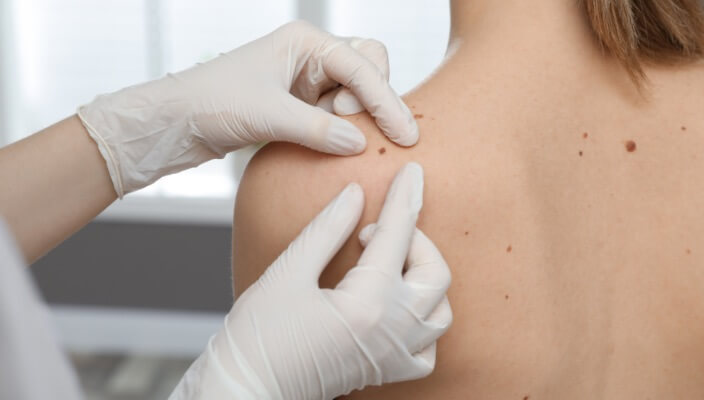
- General Dermatology
- Skin Exams
Preparing for your first dermatology appointment is important because it ensures everything goes as smoothly as possible and that your doctor is up-to-date on the status of your overall health and wellbeing. Here are our expert tips.
Read More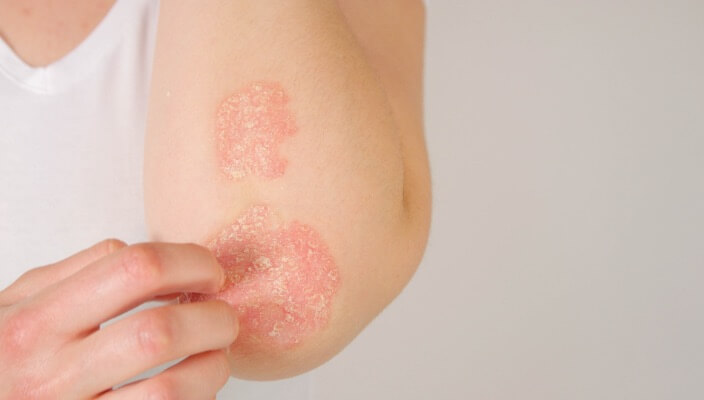
- General Dermatology
- Chronic Skin Conditions
Learn the differences between dry skin, eczema, and psoriasis, their distinct characteristics, and potential triggers. Gain valuable insights into identifying symptoms and seeking appropriate treatment to effectively managing these common skin conditions.
Read More
- Skin Care
- Cosmetic Treatments
Unlock the secrets to achieving radiant, glowing skin. Explore expert tips and skincare routines tailored to nourish and revitalize your complexion, empowering you to embrace a luminous and youthful appearance.
Read MoreFeatured Products for Hair Loss

Nutrafol Hairbiotic MD 90 day
Improves hair growth by targeting root causes of hair thinning with added nutrition and gut health support from 11 pre- and probiotic strains. Available in 30 or 90-day supply.

SEEN Discovery Kit Scented
Discover 5 of our best-selling products. The SEEN Discovery Kit features mini sizes of SEEN Shampoo, Conditioner, Deeper Conditioner, Magic Serum and Restore Scalp Serum.


